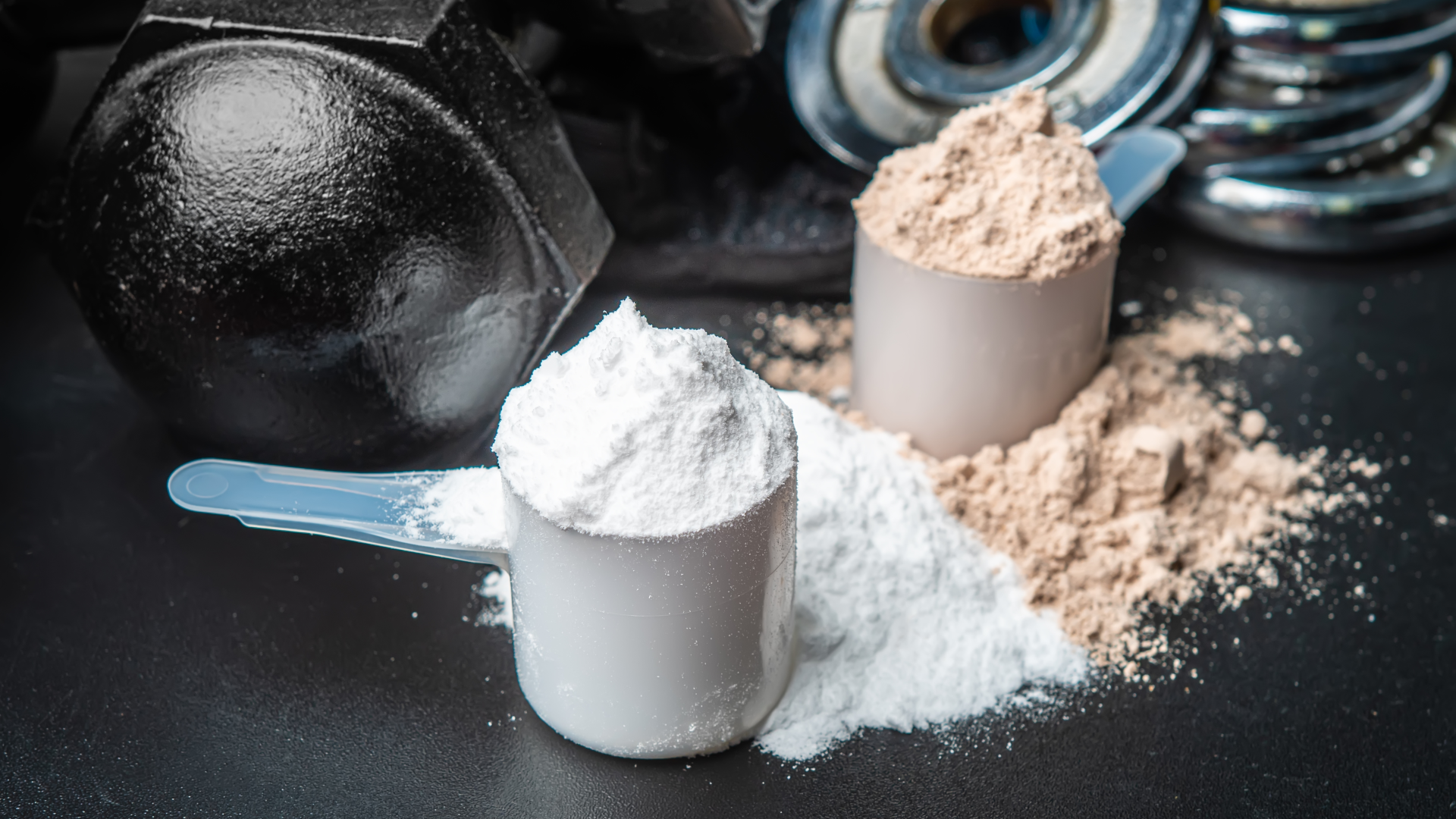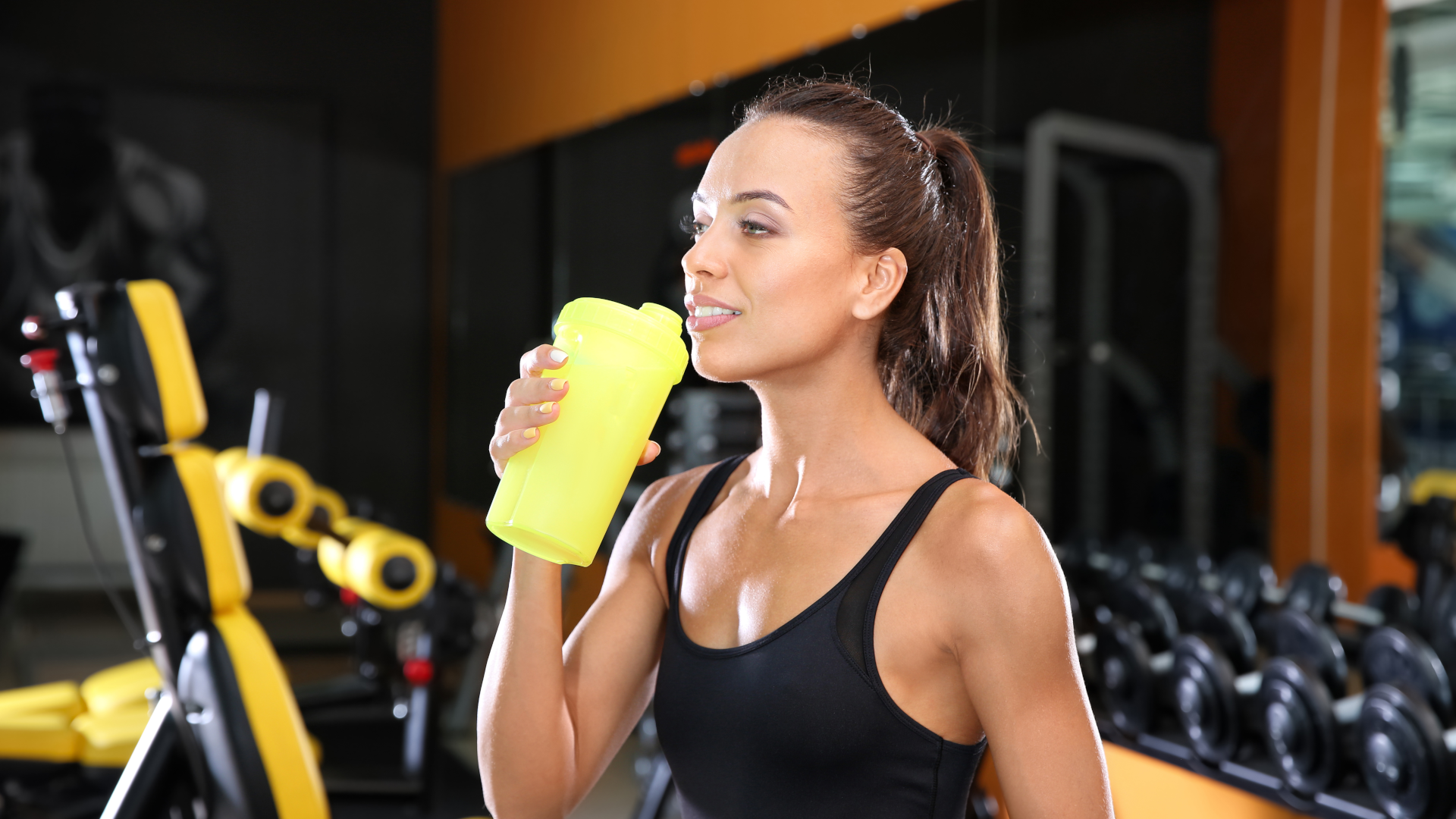Grab your cheat sheet… |
You can’t always feel on top of your game, no matter how much you try to manage the work-life balance.
Even with a decent eight hours of sleep every night, we can flag at certain times of the day due to stress or overexertion. Sometimes, you need an extra push to get through your physical performance, especially if you’re taking on high-intensity exercise.
Low energy can have a huge effect on your physical and mental performance. The safest way to get that extra “push” is through natural means, and knowing which natural energy boosters to take will give you the edge you need to succeed.
It’s common knowledge that vitamins are essential if you want to maintain a good standard of health. But some vitamins are especially epic when it comes to energy production.
Let’s have a close look at the ones you should prioritise if you want to add an extra zing to your workout.
How do vitamins fight fatigue?
If we’re going to look into which vitamins are best for boosting energy, it’s a good idea to see how and why they work.
There are certain vitamins that are very good at enhancing energy and fighting fatigue and they all work in different ways for the same end result.
Combining these important vitamins together will have a powerful effect on your energy levels.
Vitamins can help to give you an energy boost by…
- Helping to convert nutrients to glucose for energy production
- Increasing your energy-yielding metabolism to reduce tiredness
- Acting to help biochemical pathways that produce cellular energy
- Supporting your immune system which increases energy levels
- Sharpening your cognitive function and mood to reduce fatigue
- Supporting overall physiological function.
A lack of certain vitamins can directly contribute to feelings of fatigue and low energy. So if you want to push harder through your workouts, it’s essential to be in the know.
Let’s look at the best vitamins for giving you that added energy boost.
The 5 best vitamins for tiredness and lack of energy

Suffering from mental and physical fatigue is often the result of nutritional deficiencies. The best way is the natural way, and they don’t come more naturally than vitamins.
A low vitamin level in your body can cause serious health issues. So, which vitamins should be a top priority on your list if you want to increase energy?
Vitamin C
Known for its role in easing a cold, vitamin C also supports the mitochondria, the part of a cell that produces energy.
A lack of vitamin C is likely to cause mitochondrial dysfunction and an increased risk of health issues. The vitamin helps by making energy production more efficient. It also helps to transport the fatty acids that generate metabolic energy and absorb iron, which is necessary for oxygen transport.
Common symptoms of a lack of vitamin C include muscle fatigue and a lack of energy as it can deplete your stored energy. Needless to say, vitamin C is one of the best vitamins for tiredness and lack of energy.
The best sources of vitamin C to boost energy are…
- Cherries
- Plums
- Oranges
- Chilli peppers
- Strawberries
- Broccoli
- Kiwi fruit
- Brussel sprouts
Vitamin B6
The ‘B’ group are some of the best vitamins for tiredness and lack of energy. When we absorb protein and carbohydrates, vitamin B6 helps to release and absorb energy from those food sources.
This most legendary of b vitamins also helps with immunity and creates neurotransmitters like serotonin, which are essential for brain health and mood.
Getting your fill of vitamin B6 in your diet is important if you want to boost energy. It’s one of the best vitamins for athletes, as it can keep you going for longer during hard workouts.
The best sources of vitamin B6 are…
- Beef
- Liver
- Salmon
- Chickpeas
- Tofu
- Potatoes
- Bananas
- Avocados
- Pistachios
Vitamin B3
Vitamin B3, also known as niacin, has been shown to be great energy-boosting vitamins. It works by generating energy from the food you consume by supporting your metabolism.
It’s a component of coenzymes that are involved in over 400 biochemical reactions in your body related to energy metabolism.
Niacin is perfect for supporting energy release as well as fatigue and has been used to help patients with Parkinson’s disease.
The best sources of vitamin B3 are…
- Tuna
- Chicken
- Beef
- Pork
- Milk
- Eggs
- Nuts
- Cereals
- Quinoa
Vitamin B1

Adenosine triphosphate (ATP) is a form of energy used when performing high-intensity exercises such as sprints or resistance training.
Vitamin B1 works by breaking down carbs into ATP to provide your body with energy and by helping other metabolic processes, such as glucose metabolism. It helps ensure a healthy metabolism and energy on demand.
The best sources of vitamin B1 are…
- Salmon
- Seeds
- Peas
- Nuts
- Cereals
Vitamin B12
Scientific evidence suggests that taking vitamin B12 can help if you feel tired too easily. Studies have shown that if you lack B12 in your diet, you can expect to be easily fatigued and suffer from muscle weakness and cognitive issues. If you’re low on B12, you’ll struggle to go about your daily activities and boss your workouts.
They are ideal vitamins for athletes who find that they can tire easily. B12 helps to convert food into ATP in a similar way to vitamin B1 and allows your body to process food more efficiently into energy.
Those likely to suffer from B12 deficiency include vegetarians, vegans, and older adults.
The best sources of vitamin B12 include…
- Liver
- Shellfish
- Red meats
- Chicken
- Eggs
- Cereals
- Oat milk
How to further boost your energy levels

Vitamins are a great way to get your energy levels up, especially if you’re deficient in certain ones. But if you really want to get things moving, you can work with them to maximise their effect. All it takes is for you to live a healthier lifestyle. Here’s how:
Improve your sleep quality
If you're not getting enough sleep, it will have a huge impact on your energy levels. Poor-quality sleep often results in physical fatigue, which affects your body's ability to produce energy. In addition to feeling tired, you're also likely to suffer from mental fatigue.
The recommended amount of sleep is eight hours each night. So if you think you fall below that, it’s time to wake up and make some changes.
- Try to go to bed at the same time each night. This may be difficult, depending on your commitments, but try to aim for as near as possible
- Avoid drinking caffeine at least an hour before bedtime
- Turn off any electronic device which may be causing a distraction, such as mobile phone alerts
- Keep your room reasonably cool and dark
- Try to limit alcohol consumption, as this can disrupt your sleep patterns
Manage your stress
Chronic stress can have a damaging effect on your physical health and cognitive performance, so it’s a good idea to learn how to manage it better.
If you think your stress is down to having too little time in the day to do everything you need to, learning to manage your time better is a good option. Planning the day ahead to include “breather” windows, where you can take time to pause and reflect will help to manage your stress and energy levels better.
Relaxation techniques such as meditation are perfect for putting the brakes on and resetting your body and mind.
Once again, sleep plays a big factor, and if you’re not getting a decent eight hours each night, your stress levels are likely to be higher.
Read: 8 cross-training activities to boost your wellbeing
Drink plenty of water
Dehydration can easily lead to fatigue, so make sure you drink enough water throughout the day. A healthy adult should drink around 3.5 litres per day, and for women, 2.5 litres is the recommended amount.
This consumption also includes water that you take in from other drinks and food sources. If your urine is a dark yellow colour…you need to hydrate more.
Try to limit or avoid beverages that are likely to cause dehydration, such as coffee and alcohol.
Eat a healthy, balanced diet

We’ve already discussed vitamin-rich foods which can help to boost your energy levels, but there are also certain foods that you should avoid if you want to avoid energy slumps.
Complex carbohydrates, healthy fats, and protein are great for providing you with sustainable energy, but try to limit processed foods and those with high doses of added sugar. These are likely to cause blood sugar spikes which will ultimately lead to “crashes” and fatigue.
Exercise regularly
It seems a paradox to suggest that engaging in physical activity, which will cause tiredness, can boost your energy levels. But in the long term, it will.
When you exercise, your blood flow and oxygen levels increase, training your body to become more efficient in supplying oxygen. This will eventually leave you feeling less tired when performing activities and keep your energy levels higher.
Read: The 15 Benefits Of Exercise For Mental Health And Wellbeing
Ditch the bad habits
Lifestyle factors have a huge bearing on our energy levels. The feel-good habits only last a fleeting moment, but if you quit or reduce them, you’ll reap the rewards of higher energy levels.
Smoking can cause numerous health issues, and this will have a negative impact on your energy. Alcohol has dehydrating effects and can affect your sleep patterns.
Take some “you” time each day to keep yourself in a positive state of mind. Going from task to task each day without a break can be mentally draining.
Make sure you eat at a set time each day, too. Eating on the go is a sure way to burn yourself out.
Supplementation
Taking supplements can be a great way to boost your energy levels, and vitamins are the perfect supplements for energy.
The primary source of your vitamins should be whole foods, but it’s a good idea to top this up with vitamin supplements. In doing so, you can plug any gaps in your vitamin deficiency and ensure you have what you need in your system to maintain energy levels.
Dietary supplements are the perfect way to feel confident that you have an adequate amount of vitamins in your diet.
How to boost your energy levels naturally

There are plenty of ways to get your energy levels up, and the natural way is the best way.
Here’s your energy-boosting checklist…
- Get a decent quality of sleep
- Manage your stress levels better
- Eat a healthy, balanced diet packed with energy-boosting vitamins
- Stay hydrated
- Exercise regularly
- Pursue a healthier lifestyle
- Take a vitamin supplement
Look after your body, and it will look after you. Know your energy-boosting vitamins, and use them to enhance your energy levels and push yourself harder.
Looking for a vitamin-powered pre-workout energy boost? Check out Crazy Nutrition’s Intensive Pre-train. Packed with vitamins C, B12, B1, B3, and B6, it’s the all-natural way to kick-start your workout.


